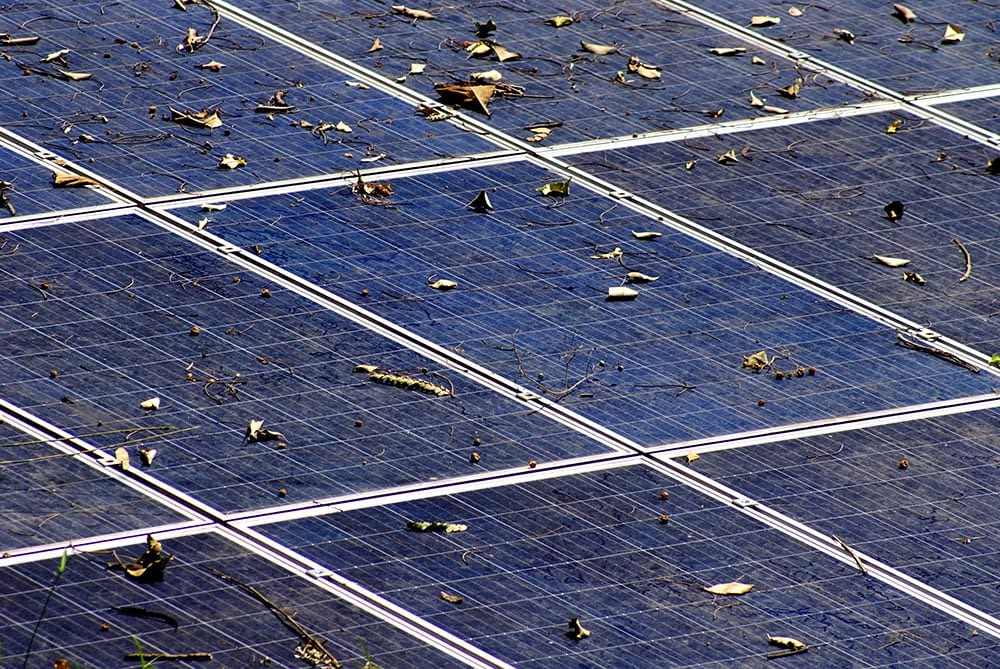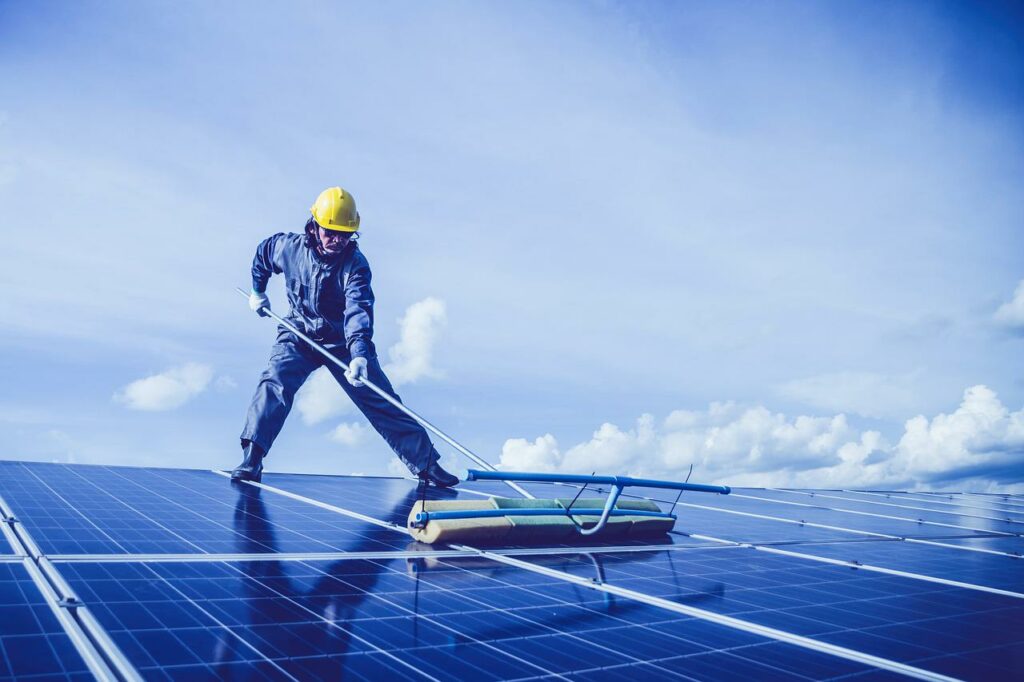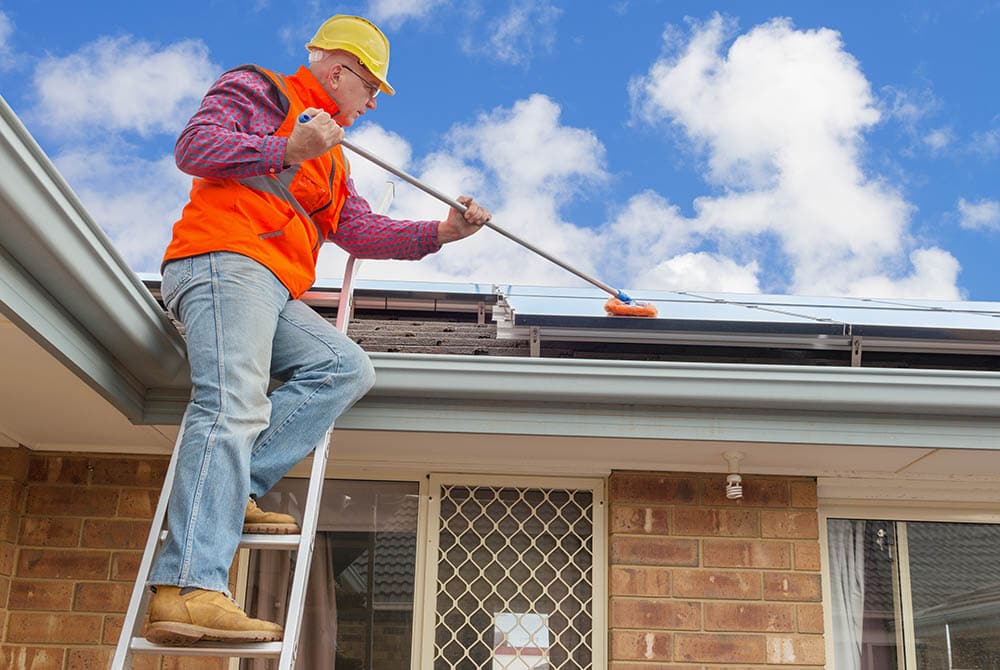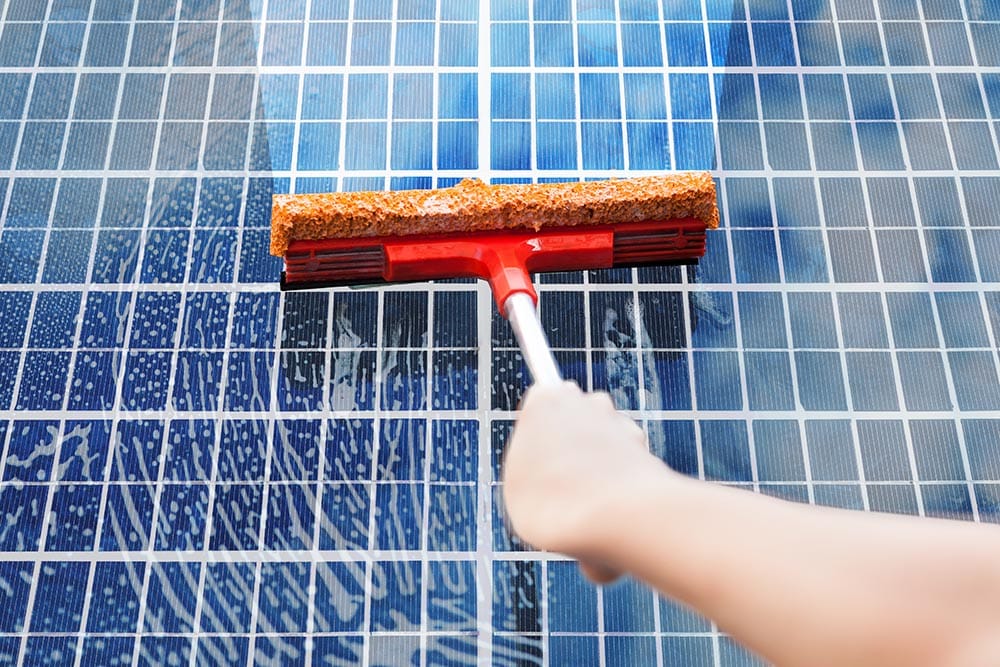How Often Should You Clean Solar Panels? Reasons, Factors, & FAQ
-
- Last updated:

Solar panels need a clean surface to be as efficient as possible. As you might imagine, the solar panel surface gets dirty while sitting outside. By cleaning the solar panels routinely, you can ensure that your solar panels are working efficiently. How often should you clean solar panels? The general rule of thumb is to clean your solar panels every 6 months to a year, depending on other factors. Keep reading as we explain further.

How Often Should Solar Panels be Cleaned?
Most professionals recommend that you should clean solar panels every 6 months to a year. However, you may need to clean your solar panels more or less, depending on your environment and the level of dirt and pollution in the area.

Clean Based on Your Environment
If you live in an area with a lot of birds, pollen, and moving dust, it’s best to clean the solar panels at least every six months. Solar panels in these areas are prone to a lot of dirt buildup. Cleaning the solar panels twice a year ensures that the panels are always working.
If you don’t live in an area with a lot of birds, pollen, or dust, you may be able to get away with cleaning your solar panels only once a year. It’s still a good idea to check the solar panels every 6 months just to make sure that the solar panels are not experiencing severe buildup.
Non-Routine Cleaning
There may be times when you need to clean solar panels outside of the regular routine. For example, you might need to clear off the solar panels if there was a storm and branches fell over the panel. Use your own common sense to determine when solar panels should be checked.
Inspect at the End of Every Season
Regardless of where you live, it’s a great idea to inspect your solar panels at the end of every season. That way, you can remove any sitting debris and clean your solar panels as needed. This is especially true after the fall and spring when leaves and pollen are at their height.

Does Cleaning Your Solar Panels Make a Difference?
Most solar panel owners are skeptical about whether cleaning their panels even makes a difference. In some cases, cleaning off your panels makes a huge difference. In others, not so much.
According to professionals at UC Davis, hiring a professional to wash off your solar panels routinely is not worth the money. They explain that although cleaning the solar panels will make a difference in how much sun can be absorbed, efficiency decreases by day anyway. So, you don’t get your money’s worth when hiring a professional cleaner.
That being said, allowing solar panels to be caked with leaves, bird poop, branches, and dust will make the solar panel less effective than it is because the panels won’t have access to the sun.
In other words, cleaning your solar panels makes a difference, but you have to be savvy in how you go about cleaning the panels.
Can You Clean Solar Panels Yourself?
So, cleaning off solar panels makes a difference, but hiring a professional to clean the solar panels is not worth the money. Is there a way that you can clean solar panels yourself? Yes.
Begin by inspecting the solar panel and removing any obvious debris, such as leaves or branches. Then, use lukewarm water and a nonabrasive sponge to clean away any remaining dirt. Once you are finished, squeegee the excess moisture so residue is not left behind.

What Is the Best Thing to Clean Solar Panels With?
It’s best to clean solar panels with three items: water, a nonabrasive sponge or cloth, and a squeegee. Do not use vinegar, cleaner, or soap. Just water and soft materials will get the job done in a safe and efficient manner.

Final Thoughts
For best results, clean your solar panels every 6 months or 12 months, but inspect the solar panels after every season to determine if they need to be cleaned.
If your solar panels need cleaning, it’s best to do the job yourself. With just some water, a soft sponge, and a squeegee, you will be able to clean your solar panels safely and efficiently.
Featured Image Credit: TS2017, Shutterstock
Contents

